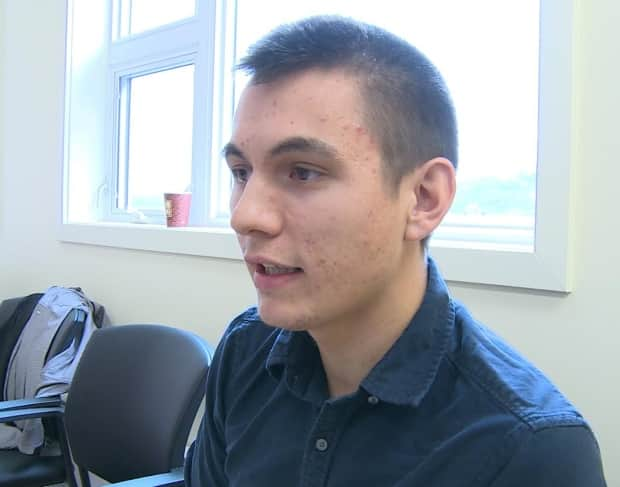Speaker for Nunatsiavut Assembly removed from government after Inuit status questioned
The Nunatsiavut government will be holding a by-election after an ordinary member of the Nunatsiavut Assembly had his Inuit land claims beneficiary membership revoked.
Edward Blake Rudkowski has been a beneficiary since 1986, first as a member of the Labrador Inuit Association before the Labrador Inuit Land Claims Agreement Act was passed in 2005. He was also Speaker of the Nunatsiavut Assembly.
He said he was advised by Nunatsiavut officials that because he was removed from the Labrador Inuit Enrolment Register, he could no longer hold his seat in government.
"I feel no differently about myself this morning than I did this time last week," Blake Rudkowski told CBC's Labrador Morning. "I don't feel any less Inuit, any less Indigenous."
According to a press release from Nunatsiavut, the decision to revoke his membership was due to a review.
My grandparents would be upset beyond belief to see this sort of thing going on. - Edward Blake Rudkowski
Blake Rudkowksi said the day after he won the 2018 election, a losing candidate went to the Office of the Registrar of Beneficiaries and asked for a review of his membership, which under the land claims agreement is allowed.
But he said after 34 years as a beneficiary, the timing seems odd.
"When we are living in an era with so many concrete issues to deal with, when we have so many people dealing with homelessness and addiction and food insecurity … people turning upon their own and people fighting among themselves … is unimaginably counter-productive," he said.
'Blood quantum' too low
Blake Rudkowski said he was told he only had 17.14 per cent Inuit blood quantum. According to the land claims agreement, a member needs to have 25 per cent.
"I couldn't begin to hazard a guess at how someone comes up with a number of 17 per cent," said Blake Rudkowski.
The government said it plays no role in determining the membership of any individuals, as the beneficiary enrolment process is independent from Nunatsiavut.
However, Nunatsiavut said there are other ways to become a beneficiary other than hitting a genetic benchmark for Inuit heritage. An individual can either apply as an Inuk or they can enrol as a person with 25 per cent Inuit descent, although it is unclear as to how the membership committee arrives at a percentage.
CBC News has left messages with the beneficiaries registrar for clarification on Blake Rudkowski's situation.

There also is a method that allows an individual to apply for a membership if they have settled on the land and follow the customs and traditions.
"There's quite a few opportunities for an individual to highlight how they have connection to the Labrador Inuit Land Claims Agreement," said Nunatsiavut First Minister Tyler Edmunds.
"The process tries to demonstrate and test how an individual is connected."
Edmunds said there also is an appeal process that can be taken if an applicant is unsuccessful in obtaining a membership and has further proof of their Indigenous heritage.
Future unclear
Blake Rudkowksi said he is undecided whether he will appeal, and doesn't yet know what his future holds.
"What the next steps are is still unclear. I truly have not decided on where to go with this at this point," Blake Rudkowksi said.
"My grandparents would be upset beyond belief to see this sort of thing going on."
Edmunds said he wanted to thank Blake Rudkowski for the work he has done for the beneficiaries over the years.
"I can remember my first call with him when I was Speaker, and he was just ready to dive head first into his responsibilities as ordinary member," said Edmunds.
"I worked closely with Ed over the last couple years and I know he has had a tremendous passion for his work. I think a lot of people can easily see that."

